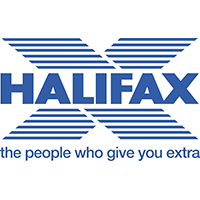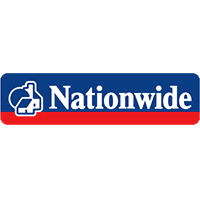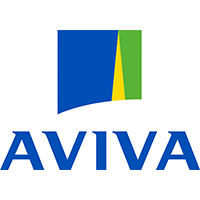


- Practical information on credit cards
- Get the right credit card for you
- Information more

UK Credit Cards Online
pros & cons
Advantages
- short term borrowing: credit cards can be useful for short term borrowing can be cheaper than a personal loan as interest is only paid on the remaining debt, not the full loan amount.
- flexibility: minimum amount can be paid each month or you can pay up to the total outstanding amount.
- no early redemption penalties: paying off a loan within the term can some times result in an early redemption penalties.
- interest free credit period: depending on the date of purchase you can get up to 56 days interest free credit
- remote purchasing: you can purchase products and services remotely over the phone or over the internet.
- other benefits: some card offer other benefits such as insurance cover on purchases, air miles, cash back and discounts on holidays.
Disadvantages
- easier to get into debt: credit cards can encourage buying goods or services that you cannot really afford.
- Minimum payment: It is important to remember that paying the minimum payment on a credit card, which can be as little as 2.5% of the balance, will mean the debt will remain for a long period.
- expensive cash withdrawals: if you withdrawing cash from a cash point there can be very expensive fees and sometimes a higher rate of interest is applied .
- insufficient credit limit: when you apply for a credit card you may not be able to obtain as higher a credit limit as you want.
- open to fraudulent use: using a credit card, can introduces an element of risk, if the card details fall into the wrong hands this may result in fraudulent purchases on the card.
Credit card guide
Credit cards can be used to purchase goods and services either in person
or remotely. They can also be used to withdraw cash from a cash point
machine or via a bank.
buying in person:
The credit card is swiped by the sales assistant through an electronic
terminal which prints a sales voucher with the card and transaction details,
or reports that the transaction has not been authorised.
Alternatively, the card can be placed in an embossing machine to produce
a voucher with card details. Authorization for the transaction can be
given over the phone if required.
Most credit cards are chip and pin which require you to enter a four
digit pin number at the point of sale. The pin number is supplied by
your card provider, although you have the ability to change this number
to an easier to remember number.
Some old style cards still require you sign the voucher and the assistant
compares it to that on the card.
buying remotely:
You can also use a credit card to purchase products or services remotely,
via telephone or the internet. All you need to provide is the credit
card number, expiry date ,card holder's name and in many cases the security
number fro the back of the card. This allows you to make purchases instantly
and removes the risk of losing cash or a cheque in the post. However,
using you credit card remotely introduces a risk that your card details
could be used fraudulently.
withdrawing cash
A credit card can be used in conjunction with a PIN number to withdraw
cash from a cash point or bank against your available credit. There may
be a charge for this service and interest is normally charged from the
date of withdrawal, even on cards that offer an interest free period.
The interest charged on cash withdrawals is higher than interest charged
on normal transactions.
credit limit
When your application for a credit card is accepted you will be told
what credit limit you have been given. You can make purchases up to this
credit limit. Trying to make further purchases once you have reached
your limit will result in the transaction being refused.
How interest is calculated
Depending on the credit card, interest is calculated either from the
date of the transactions you make or from the statement date.
A credit card that charges interest from the transaction date may be
worthwhile if you do not intend to pay off the balance at the end of
the month and the interest rate offered is low. Holding the card may
also entitle you to a particular benefit that outweighs the additional
interest charges.
Credit cards which calculate interest from the statement date and only
impose the interest if you do not settle the statement in full are preferable.
In practice, this means you can get a maximum of 56 days interest free
credit; the transaction can be up to 31 days before the statement and
the card issuers usually allow a further 25 days for payment to be made.
Offset deals
Some banks are now offering 'offset deals' meaning that credit card debt
can be offset against any savings before interest is calculated.
This means if your savings are equal to or greater than your credit card
debt you will pay no interest on your credit card at the end of the month.
If your savings are less that your credit card debt you will still benefit
as the interest charged will be calculated on you credit card balance
less your savings balance.
You receive no interest on your savings but as the interest charged for
borrowing is greater that the interest gained through saving, you will
be better off
types of card guide
gold & platinum cards
These are credit cards offered to those who are considered a good credit
risk, with a higher salary usually above £20,000 or £25,000.
They generally offer a higher credit limit, a larger daily cash withdrawal
limit and other additional benefits such as travel insurance, extended
warranties for household appliances, medical insurance, card protection
and hotel savings.
To some they also provide a status symbol but some of these types of
cards can have monthly fees.
Charitable cards
Each time the card is used the card issuers makes a small donation to
a charitable cause, at no additional cost to the card holder.
The 'charitable cause' includes recognised charities such as Oxfam, as
well as football clubs, universities and many other organisations.
store cards
These cards are issued by a shop/retail chain and can only be used in
the shop/retail chain that issued them. In the main they charge a higher
rate of interest than credit cards and should be avoided unless you are
able to pay off the outstanding balance each month. These type of cards
can offer benefits such as discounts exclusive to card holders.
charge cards
These cards provide an 'account' against which withdrawals can be made
to make purchases. The outstanding balance must be paid in full each
month or heavy penalties are incurred.
They are a form of credit/debit card hybrid which can be used in the
same way as a regular credit card. An annual fee is normally charged
which can cost over £100.
American Express and Diners Club are the best known charge cards. In
fact, other than these two companies, charge cards are only offered by
banks to their existing customers.
Charge cards usually offer additional incentives such as insurance, air
miles and/or reward points.
To some they provide a status symbol, especially the American Express
Centurion Black Card. This charge card is offered by invitation to the
very, very wealthy. It offers unlimited free credit although the outstanding
balance must be paid in full each month.
company cards (business cards)
These are charge cards issued to companies. Cards are issued to chosen
members of staff and monthly statements are sent to both the card holder
and the company. This allows the company to track and analyses company
expenditure.
The card can be linked to a current account so that payment is automatically
made each month.
Uk Credit Cards
Credit cards can be complicated, we hope that you find the information on credit cards on this site useful. If you feel that there areas of the personal finance market not covered in this site that you would like to see please let us know your thoughts contact us.
Thank you for visiting Go Direct Credit Cards, Personal Finance made simple.
Go Direct.co.uk is a trading style for website purposes of Go Direct UK Ltd.
Go Financial Services is a trading style of Go Direct UK Ltd which is an appointed representative of Personal Touch Financial Services Ltd which is authorised and regulated by the Financial Conduct Authority. Registered in England & Wales Company 5703224. FCA Number 456600










